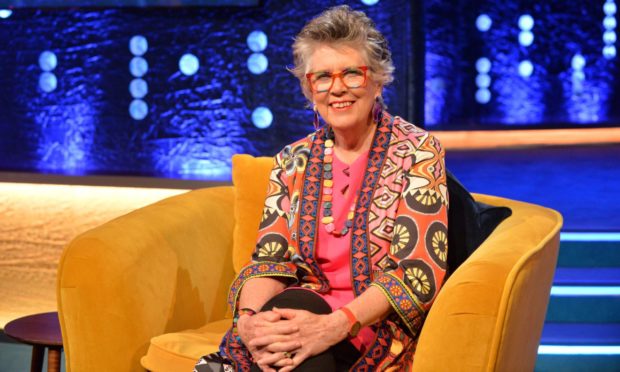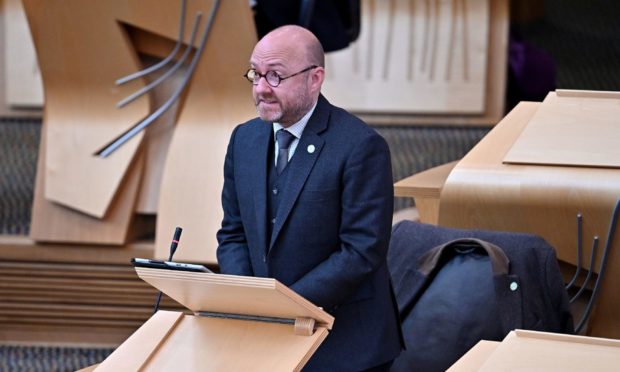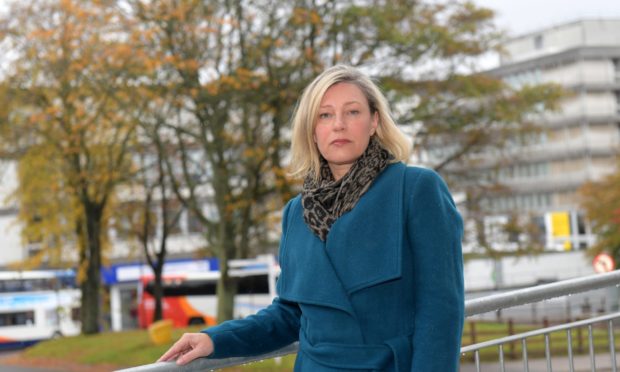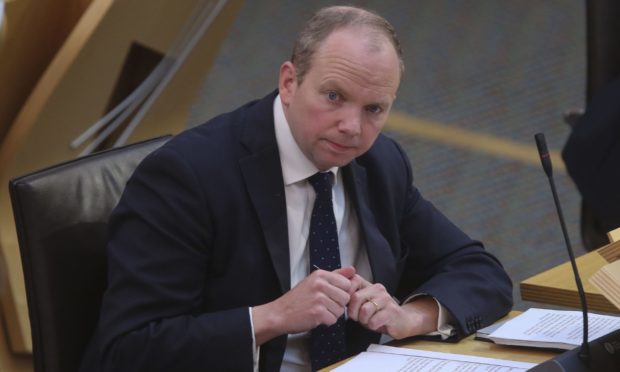Candidates standing for the Scottish Parliament have been sent thousands of messages in just two weeks in a campaign to legalise assisted dying, we can reveal.
More than 2,000 people sent nearly 44,000 appeals to members of all political parties ahead of the May 6 election.
It follows a call from Dignity in Dying this month to try for a third time within a decade to liberalise the laws in Scotland.
The campaign was publicised by Great British Bake Off judge Prue Leith, whose brother David died from cancer. She said the experience had been “monstrous” and asked MSPs to change the law in the next parliamentary session.
The first attempt to legislate was led by Margo MacDonald, a veteran MSP with Parkinson’s disease who died in 2014. A second attempt, taken on by Greens co-convener Patrick Harvie, was rejected in 2015.
Recent changes include an End of Life Act in New Zealand, a nation that MSPs and First Minister Nicola Sturgeon have often held up as an example.
The Scottish Green Party is the only one with a specific manifesto pledge to legislate for assisted dying.
The SNP wants a “citizens’ assembly” to look at the difficult issue, while Labour and Conservatives did not make specific proposals.
Liberal Democrats adopted a policy in 2015 to support assisted dying, which still stands.
We should be looking at the bigger issue of getting the NHS properly funded.”
Alistair Thompson, Care Not Killing
Ally Thomson, from Dignity in Dying, revealed the level of support and said: “I think it’s clear the status quo is not working. We welcome the commitment from the Greens and the SNP’s proposed assembly.
“We asked people to raise this with their local candidates and the response has been incredible.
“The big difference this time is on safeguards in the legislation, and we’re confident it could be passed in the next parliamentary session.”
Opposition has been strong in the previous attempts, including warnings from the British Medical Association.
Alistair Thompson, spokesman for campaign group Care Not Killing, said: “It defies belief that we’re talking about this now.
“We’re in the middle of a pandemic where disabled and vulnerable people have been treated appallingly, yet here we are with a possible new attempt to get this over the line.
“We should be investigating the very worrying trends emerging from other countries. We should be looking at the bigger issue of getting the NHS properly funded to extend the benefits of palliative care.”
What do Holyrood parties say?
Individual politicians have been allowed by parties to vote according to their personal principles in past debates. It makes it harder for members of the public to get a firm view on individual views when there is no formal proposal on the table.
Here, we set out where the parties stand.
Scottish Green Party: On a new law for assisted death, the Scottish Green Party stated: “As part of our plans to bring dignity to dying, Scottish Greens will introduce safe and compassionate laws that allow terminally ill adults the right to an assisted death when the time is right for them.”
The manifesto also calls for better palliative care for children and more training for health professionals caring for people at the end of their lives.
The SNP: The party’s manifesto outlines a citizens’ assembly to debate the more “complex issues” such as drug reform and end of life choices.
The SNP leadership has not instructed its politicians to toe a line on the policy, previously allowing a free votes on the issues.
Gillian Martin, the SNP candidate for Aberdeenshire East, said: “In 2015, the debate around assisted dying was considered, sincere and, crucially, helped to focus attention on end-of-life care and the quality of treatment that people deserve as they near death.
“This is something that a re-elected SNP Government will work to ensure remains at the centre of end-of-life care.
“Traditionally votes on assisted dying have been a matter of conscience for the SNP. It is important that sensitive issues such as this remain free votes so that MSPs can express their own views as well as those of their constituents.
“We have committed to running annual Citizens’ Assemblies, bringing together a cross section of people across the country to look at some of the more complex issues in society, like assisted dying, and ensuring the voices of people across Scotland are heard.”
‘Hugely distressing’
Scottish Conservatives: Donald Cameron, the Conservative health spokesman and candidate in the Highlands and Islands, said: “Coping with terminal illness is hugely distressing for both the patient and their loved ones.
“The Scottish Conservatives believe that any alteration of the law in this area is not a matter for the Government or the judiciary and ultimately should be decided by individual MSPs in a free vote.
“If any proposals are brought forward in the future, our MSPs would ultimately consider the legislation before voting according to their own conscience on this sensitive issue.”
Scottish Labour: There was no commitment in Labour leader Anas Sarwar’s manifesto.
Party health spokeswoman Jackie Baillie said: “Labour’s national recovery plan sets out our ambitions to enabling everyone across Scotland to live fulfilling lives, through investment in our NHS and creation of a National Care Service. We will also work to improve palliative care.
“Action on assisted dying must be led by the Scottish people, and recognise the full diversity of views across our nation. If legislation comes forward, it should hold at its heart the right for everyone to have dignity at the end of their lives.”
Scottish Liberal Democrats: Orkney candidate Liam McArthur said: “More and more people have personal experience of what the law prevents.
“The election is an opportunity to gauge views. It is a sensitive issue – we support reform but it would be down to personal judgement and legislation would need to be drafted with safeguards.”
Mr McArthur had been part of Holyrood’s End of Life Choices working group. It slowed down its work when the Covid-19 pandemic struck.
They had been preparing for a public consultation and believed the mood was shifting in favour of changing the law to allow for assisted dying.



